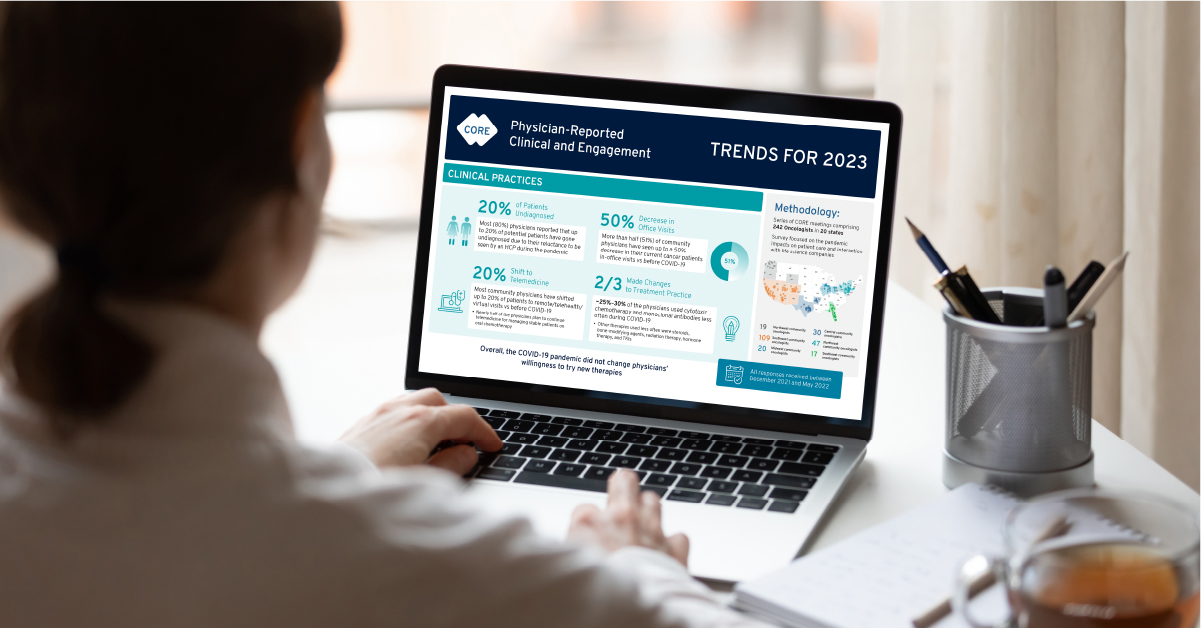As we begin to consider a post-pandemic world, some lasting effects of COVID-19 on clinical practice are emerging. Aptitude Health conducted a virtual Community Oncology Research Evaluations (CORE) meeting to find out what changes may persist among community practices post-pandemic. In general, CORE meetings usually include up to 10 community practices from the Axess Network. They feature an expert-led presentation and expert-moderated dialogue, followed by a survey to gain attendee insights. Reports summarizing these events provide an in-depth understanding of patterns of care, treatment choices, practice challenges, and resource needs.
In the first blog article around this topic, the pharma relevant findings were addressed. In this second article, physician perspectives are summarized. The CORE survey focused on the impacts on patient care and life science companies’ access to and engagement with the community physicians during the pandemic. There were 242 participants, and all responses were received from December 2021–May 2022. Participants included community oncologists from across the United States, with the largest proportion in the Southwest region. Download your copy of the infographic that summarizes all main findings:
- 80% of community physicians believe 1%–20% of potential patients have gone undiagnosed due to their reluctance to be seen by a healthcare provider during the pandemic
- Virtual events and telemedicine will remain prominent post–COVID-19
- More than half (51%) of community physicians have seen up to a 50% decrease in their current cancer patients’ in-office visits vs before COVID-19
- Overall, most community physicians have shifted ≤20% of patients to remote/telehealth/virtual visits vs before COVID-19
- These numbers were highest in the Northeast, lowest in the West (Northwest and Southwest)
- For managing stable cancer patients on oral chemotherapy, telemedicine is the most used strategy, followed by use of an extended dosing schedule and switching from intravenous (IV) chemotherapy to oral or subcutaneous (SC) chemotherapy
- Nearly half of the participants plan to continue telemedicine for managing stable patients on oral chemotherapy
- ~25% of physicians said they have not made any changes to their patient management strategy
- Overall, a third of physicians did not make any changes to their treatment practice; however, ~25%–30% used cytotoxic chemotherapy and monoclonal antibodies less often during COVID-19
- After COVID-19 is under control, most physicians plan to implement safety protocols that industry reps must agree to before the visit, followed by exclusively planned or scheduled meetings only and reduced frequency and/or length of visits
To summarize, even after COVID-19 is under control, many oncologists expect to continue attending virtual events and using telemedicine to manage stable patients on oral chemotherapy. They will continue using extended-dosing schedules, and a smaller proportion will continue to use SC over IV when appropriate. For the full CORE report, contact Aptitude Health. To participate in future Aptitude Health events and programs, enroll in the Axess Network.


